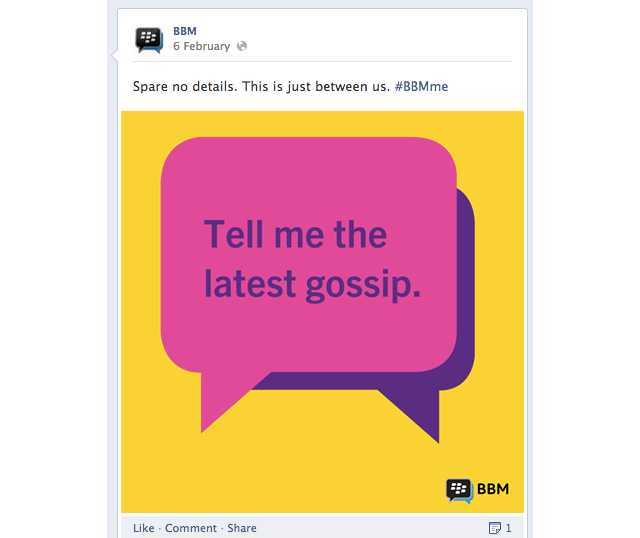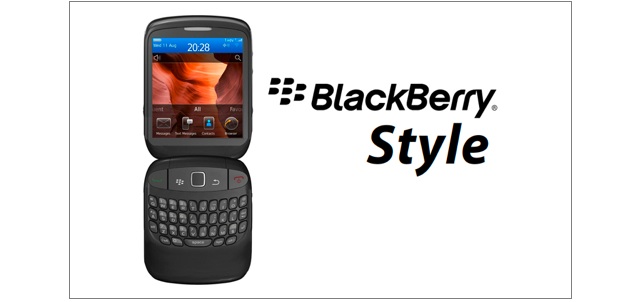
Regardless of your feelings for BlackBerry’s survival chances, it’s impossible not to be impressed at the speed with which new CEO John Chen has altered the company’s direction away from consumer electronics towards more attainable goals. In addition to offloading hardware manufacturing liability to Foxconn, Chen has over the past two months reshaped BlackBerry’s global sales team, its enterprise services team, its developer relations team, and created a new cloud business division within QNX. BlackBerry is now an enterprise company again, and that’s a good thing.
But until this week there remained one division yet to be remoulded to Chen’s vision: BBM.
Now on iPhone and Android, with over 80M active users, BBM is BlackBerry’s most successful product in years (vaulting over an admittedly low bar). But it is also the last vestige of an identity crisis that has plagued BlackBerry since the days of the Pearl: an enterprise company appealing to a consumer market it stumbled into but didn’t (and still doesn’t) grok. Every consumer success (BBM, Pearl, Curve) achieved by the company has been more than matched by consumer flops (the Pearl Flip, the Style, BBM Music, and most disastrously, the PlayBook).

The discord between BlackBerry’s new focus and BBM’s legacy identity as a emoticon-fueled tween gossip machine is apparent not only in the app’s marketing (see above image, pulled from the BBM Facebook page), but also its product roadmap. When BBM launched for iOS and Android, it launched without the ability to find and add friends via their contacts list or other social networks — a feature most would consider table stakes for a mobile communications app.
However, BlackBerry’s stance was that the omission was intentional based upon customer requests for a deterrent against contacts list filled with people you don’t actually want to BBM. Of course, this request wasn’t coming from the youth demographic BlackBerry has been marketing to via social media (who had been forced to use 3rd party apps or post their PIN publicly), but the enterprise customers it wants to sell smartphones to. BlackBerry has since added the feature, but the time to have it was during the launch window when it gained 20 million new users, not four months later. There’s a reason why BlackBerry hasn’t issued any new press releases about BBM’s likely-stalled upward momentum.
BBM’s competition is no longer Whatsapp, but Skype, Yammer, and every other enterprise communications tool.
The departure of BBM’s EVP Andrew Bocking has reset the app’s course dramatically. Bocking had been an employee of BlackBerry for almost 15 years, overseeing numerous major OS launches, and was by all accounts an extremely hard worker and nice guy (see disclosure below). But he was also former CEO Thorsten Hein’s guy (and former former CEO Mike Lazaridis’ guy before that). Sources familiar with the matter have indicated to me that with Hein’s departure so went Bocking’s support in spinning off BBM into its own company, leaving him looking for new opportunities . (No matter what anyone at BlackBerry says publicly, BBM was being run as distinct entity to make it easier to spin out or be acquired – including separate bookkeeping.)
While not directly responsible for Bocking’s departure, Chen has acted quickly to align BBM with BlackBerry’s new mandate. Chen is on record about BBM’s enterprise potential, and by placing it under John Sims’ control, has moved it back into BlackBerry’s ‘portfolio’ of enterprise services. BBM’s competition is no longer Whatsapp, but Skype, Yammer, and every other enterprise communications tool. It’s too early to say how that will affect BBM’s roadmap, specifically BBM Channels, which just launched on iOS and Android and is poised to be a major source of revenue. But BlackBerry has previously demoed BBM on desktop publicly, and a full-throated client leveraging Channels and a few other features would be very compelling. Enterprise collaboration companies have struggled to create useful mobile companion apps, but BBM has always been mobile-first, leaving BlackBerry with a much needed competitive advantage.
Of course, the point isn’t that we have our own ideas about where BBM is headed, but that Chen does, too. Led by a new man at the top, BlackBerry now has one identity. It will be interesting to see what comes of it.
Disclosure: I used to work for BlackBerry from 2009-2011. I can attest to most of Andrew Bocking’s positive qualities personally. Specifically his height: dude is tall.
MobileSyrup may earn a commission from purchases made via our links, which helps fund the journalism we provide free on our website. These links do not influence our editorial content. Support us here.


